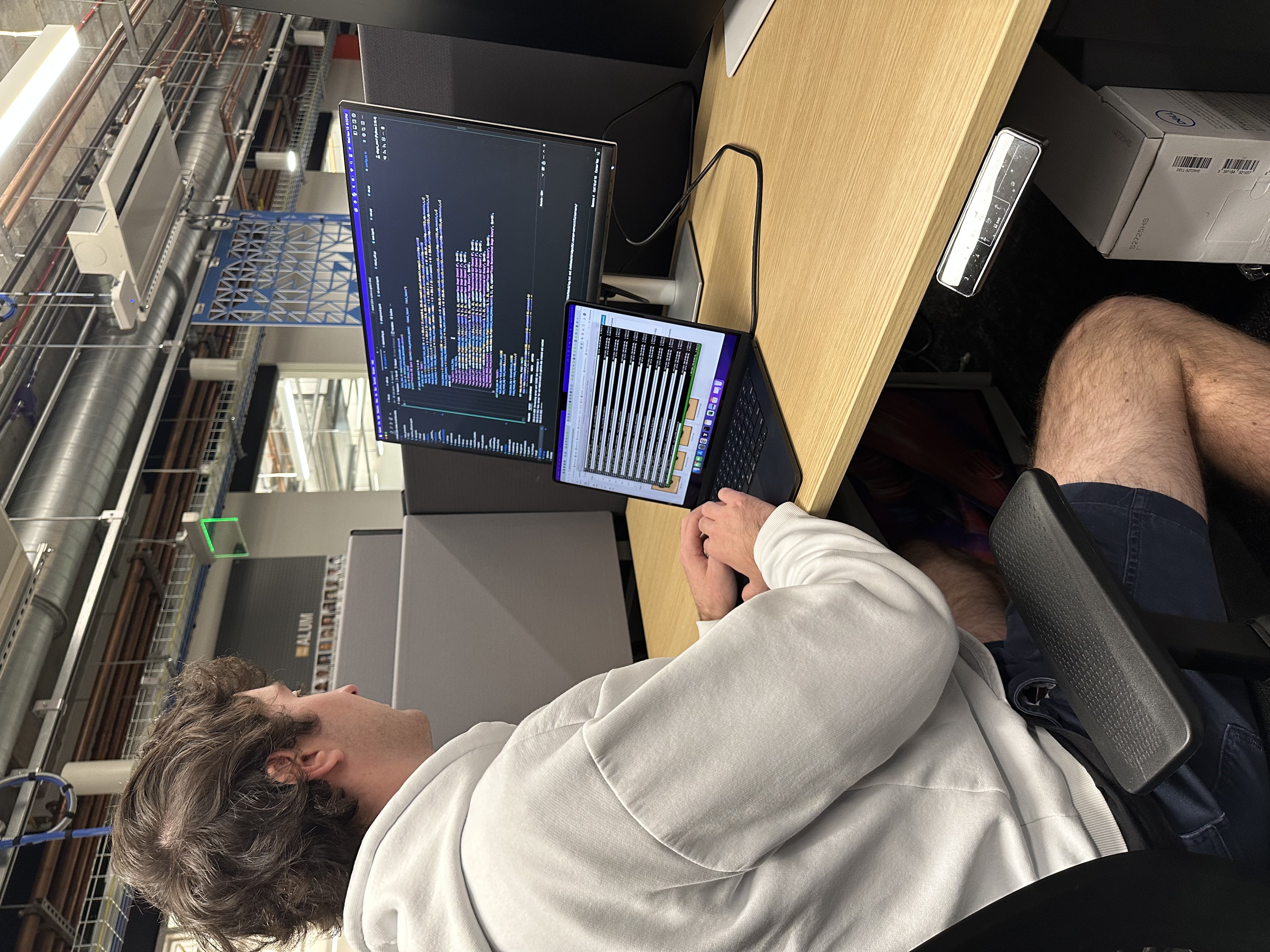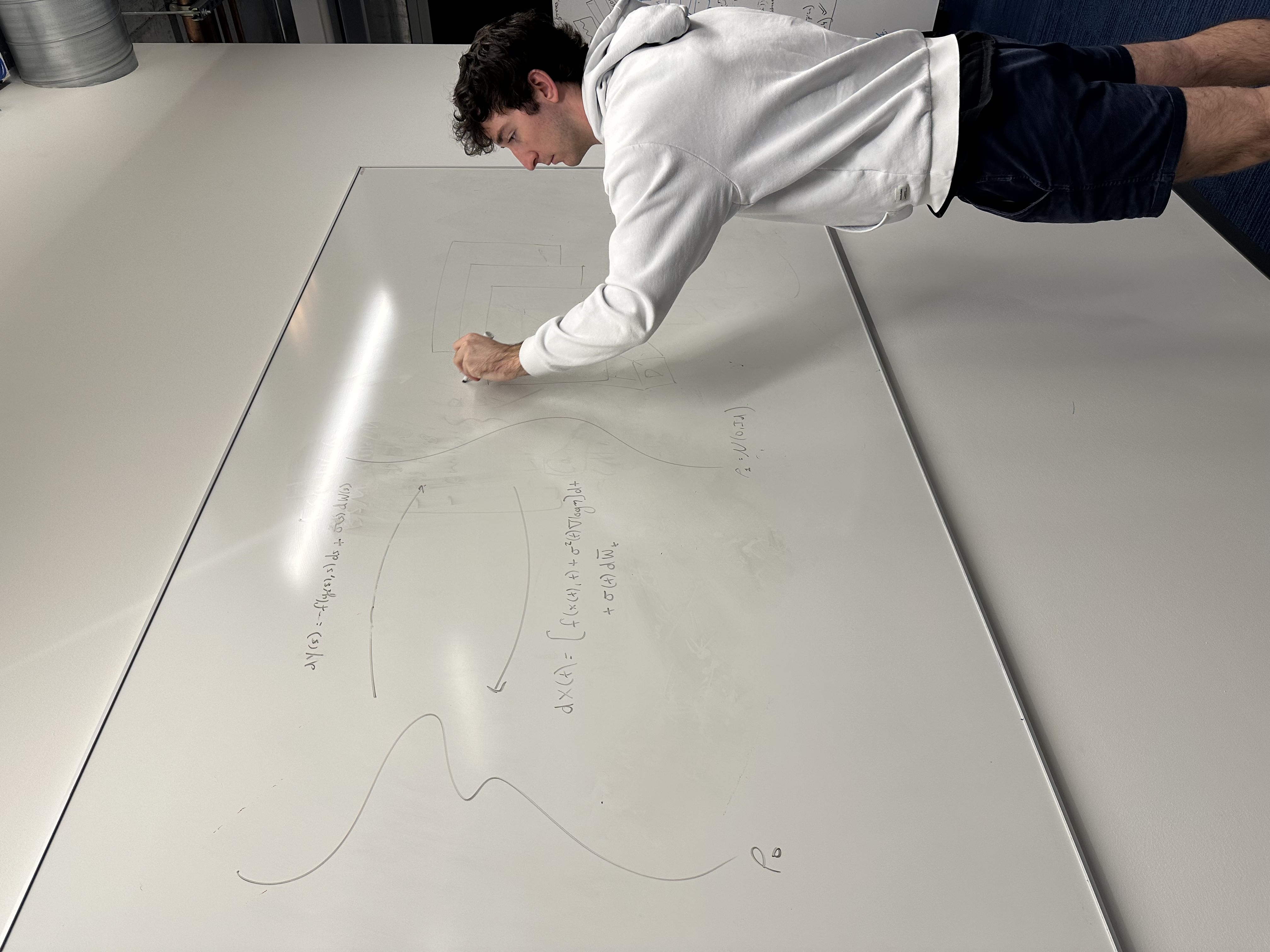Nolan Bridges is graduating with the Research Option in Computer Science in December 2024. His thesis, conducted under the direction of Dr. Peng Chen, discusses generative modeling in the scientific domain.

How long have you been an undergraduate researcher at Georgia Tech?
I have been an undergraduate researcher for four semesters now.
How did you get involved with undergraduate research?
I went to a UROP presentation my freshman year where I found out about the possibility for undergraduate students helping conduct research. This sounded very intriguing to me because I wanted to be on the cutting edge of technology and get the most out of my undergraduate education. I began searching the College of Computing’s website for labs with projects that I was interested in. Looking at the research topics in Dr. Chen’s Scientific Machine Learning and Uncertainty Quantification group, I thought it would be a great fit; I sent him an email and he invited me to visit the lab for a group meeting.

What are you working on?
I have been working on several projects that attempt to solve differential equations using neural networks. Numerical solvers of differential equations are robust and versatile across a broad spectrum of problems, but can often be very slow. In applications where solutions are needed in real-time, faster methods are necessary. Recent advancements in machine learning have shown that neural networks can solve differential equations very quickly. My work has mainly surrounded itself with observing and/or finding ways to reduce extrapolation errors in order to ensure robustness of these models when used with critical applications. More recently, as part of my thesis, I have been investigating diffusion models as an alternative method of generating solutions to differential equations. In particular, I have been working on reducing the computational resources needed to work with large quantities of data while improving results compared to existing methods. Based on early results, I’m very excited to see where this project leads.
What is your favorite thing about research/researching?
I love reading literature and seeing the impressive work that people in my lab and the machine learning community as a whole have done. Being a part of the research community is exciting, and I would recommend it to any undergrad who has a desire to contribute something meaningful to the world’s collective knowledge base.

What are your future plans and how has research influenced them?
Before getting involved with research, I was not seriously considering going to graduate school. After a couple years of research involvement, research is now something that I am convinced I would like to continue to do in graduate school and beyond. I appreciate Georgia Tech and UROP for encouraging students to take part.
